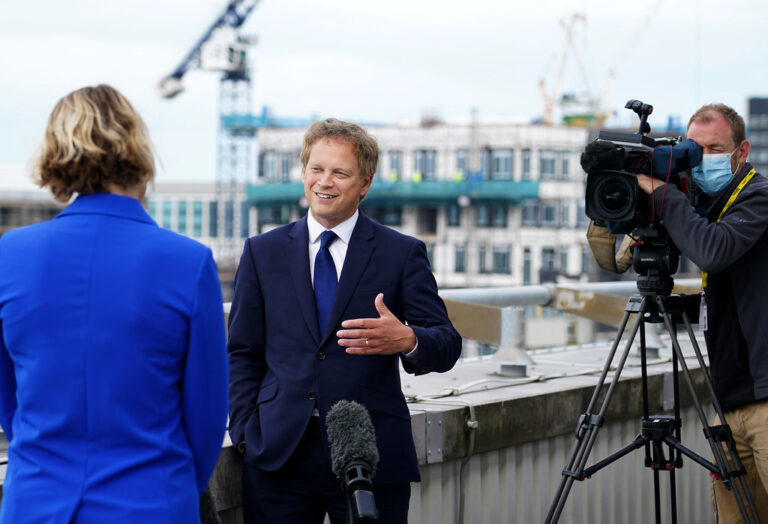Cleaner air, healthier communities and tens of thousands of new green jobs are set to become reality as a result of the UK’s Transport Decarbonisation Plan, announced this morning (14 July) by Transport Secretary Grant Shapps.
With just months to go until major climate summit COP26, the plan provides what the UK government feels is a ‘world-leading greenprint’ to cut emissions from the UK’s seas and skies, roads and railways, setting out a credible pathway for the whole transport sector to reach net zero by 2050.
As part of the government’s vision, the sale of new diesel and petrol heavy goods vehicles (HGVs) will be phased out by 2040, subject to consultation – combined with the 2035 phase out date for polluting cars and vans. This represents a pledge to phase out all polluting road vehicles within the next two decades. The consultation proposes a 2035 phase out date for vehicles weighing from 3.5 to 26 tonnes and 2040 for vehicles weighing more than 26 tonnes – or earlier if a faster transition seems feasible.
“The industry is developing many types of zero-emission technologies for heavy commercial vehicles, with electric, hydrogen and other alternative fuel options available,” commented Mike Hawes, Chief Executive of The Society of Motor Manufacturers and Traders (SMMT). “However, the technologies are still in their infancy – so if the UK wants to be a leader in uptake, government must provide the right incentives and infrastructure so hauliers don’t defer their decarbonising decision to the last minute. Plus, given these vehicles operate across borders, we need to ensure the solutions work both for the UK and our close international markets.”
“The Transport Decarbonisation Plan will help to provide logistics businesses with confidence and clarity on the steps they must take on the pathway to net zero,” enthused Elizabeth de Jong, Director of Policy at Logistics UK. “Consultation on proposed phase out dates for new diesel HGVs should enable business to move forwards with confidence. Rail, shipping and aviation are all essential parts of logistics, so plans to support freight modal shift and develop technologies to reduce emissions across these modes are welcome.”
The Road Haulage Association (RHA) was swift to criticise the government over its plans. In a statement released shortly after Shapps’ speech, the association stated that although it supports the eventual aim, it says the plan is speculative, potentially damaging to business, and short on detail.
“This proposal as it stands is unrealistic,” responded Richard Burnett, RHA Chief Executive. “These alternative HGVs don’t yet exist – we don’t know when they will and what they will cost.
“It’s also not clear what any transition will look like – this is blue skies aspiration,” Burnett continued. “For many haulage companies there are fears around cost of new vehicles and a collapse in resale value of existing lorries. We support investment in vehicles to deliver Net Zero, but it requires coherent, affordable and inclusive market-driven policies.”
Of course, the makers of these greener vehicles have welcomed the news although some believe the plan doesn’t go far enough. “It gives British fleet operators and buyers a level of certainty that didn’t previously exist,” accepted Essa Al-Saleh, CEO of Volta Trucks. “That said, the ban on internal combustion engine trucks by 2040 is nearly 20 years away, and today’s climate emergency cannot wait. Trucks account for less than 2% of road vehicles but 22% of CO2 emissions from road transport, and the relative share of truck emissions is certain to increase as emissions from passenger cars are driven downwards by the surge in the sales of electric cars.”
“It is now critical for investors and government to back electric truck solutions that meet the unique needs of fleet operators in an economically viable way,” added Asher Bennett, Founder and CEO of Tevva. “Unlike cars, which are used on average for 1.5 hours per day and buses that run on dedicated routes, freight trucks face different challenges when it comes to electrification, such as the requirement to work 8-12 hours per day across varied routes, environments and distances. Not every electric truck manufacturer on the market has considered this requirement, creating a potentially expensive problem for fleet operators further down the line.”







